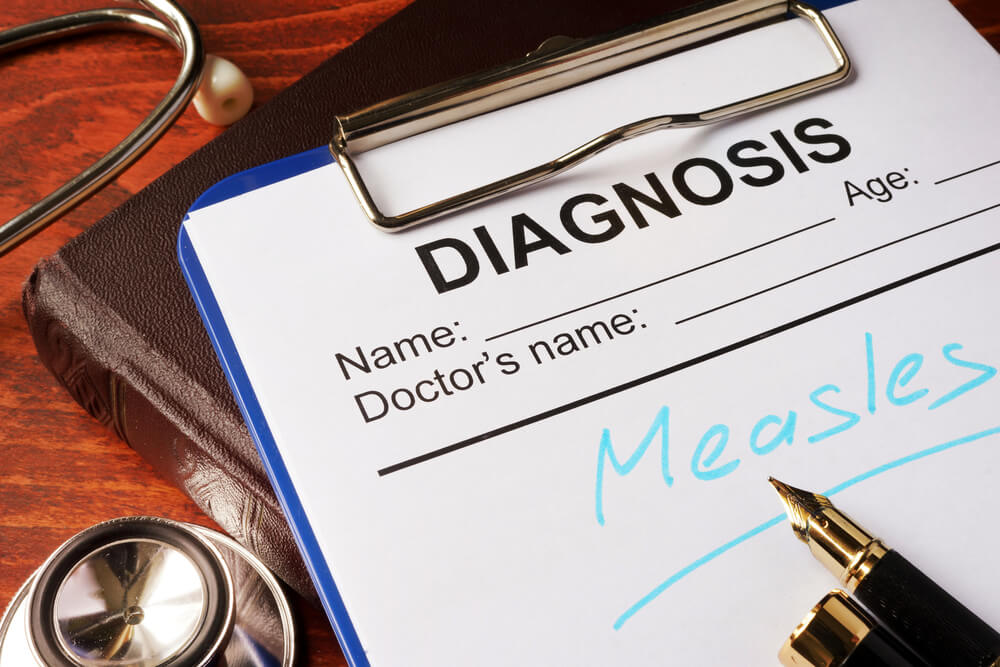Measles, a highly contagious viral infection, has become a growing concern in recent years. While vaccination efforts have significantly reduced measles cases, it’s crucial for parents to be aware of the signs and symptoms of this illness. In this comprehensive guide, the experts at Children’s Medical Center of South Florida will explore the symptoms of measles, its impact on children, and the necessary steps for measles treatment.
Uncovering Measles
Measles, scientifically known as rubeola, is an infectious viral illness caused by the measles virus—a member of the Paramyxovirus family. This virus is characterized by its ability to swiftly transmit from person to person, creating challenges for public health management. Understanding the intricacies of the measles virus is essential in appreciating the necessity of preventive measures and the importance of early detection.
Measles is notorious for its high contagiousness, primarily due to its mode of transmission. The virus spreads through respiratory droplets expelled when an infected person coughs or sneezes. These droplets can linger in the air or on surfaces, making it easy for non-immune individuals to contract the virus. The contagious nature of measles places it among the most easily transmissible viruses, posing a significant public health concern.
While measles has been a historical adversary, the development of an effective vaccine has revolutionized the landscape of disease prevention. Vaccination plays a pivotal role in protecting individuals and communities from measles outbreaks. The measles vaccine, typically administered as part of the measles-mumps-rubella (MMR) vaccine, provides immunity against the virus, reducing the risk of infection and minimizing the severity of the illness in case of exposure.
Signs of Measles

Fever
The onset of measles is often marked by a significant spike in body temperature, with fever emerging as one of the initial indicators. Measuring above 101 degrees Fahrenheit, this fever is a relentless companion during the early stages of the illness, preceding the appearance of other hallmark symptoms. Parents should closely monitor their child’s temperature, as a persistent high fever is a signal to seek medical attention promptly.
Cough
As the measles virus progresses, a persistent cough becomes increasingly noticeable. Accompanied by a runny nose and sneezing, this cough is part of the respiratory manifestations of the disease. Parents should be attentive to any changes in their child’s respiratory patterns and seek medical advice if a persistent cough persists or worsens.
Conjunctivitis (Pink Eye)
Measles often brings about distinctive changes in the eyes, leading to redness and excessive watering—commonly known as pink eye. The inflammation of the conjunctiva, the thin membrane covering the whites of the eyes, contributes to the characteristic appearance of this eye condition. Recognizing the signs of conjunctivitis in conjunction with other symptoms aids in early identification of measles.
Koplik Spots
Inside the mouth, a unique diagnostic feature of measles presents itself in the form of Koplik spots. These small white spots, often likened to grains of salt on a red background, manifest on the inner lining of the cheeks. Identifying Koplik spots can be instrumental in confirming a suspected case of measles and underscores the importance of thorough medical evaluation.
Rash
A defining characteristic of measles, the rash typically emerges a few days after the onset of initial symptoms. Starting on the face and gradually spreading down the body, the rash consists of small, red, and raised spots that may eventually merge. Observing the progression and nature of the rash is crucial in differentiating measles from other viral illnesses and guides healthcare professionals in confirming the diagnosis.
Fatigue
Children grappling with measles often experience extreme fatigue and lethargy. This pervasive sense of tiredness can be particularly pronounced throughout the course of the illness. Parents should be mindful of changes in their child’s energy levels, as persistent fatigue can indicate the severity of the infection and potential complications.
Measles Symptoms in Children
In children, measles symptoms can manifest more intensely compared to adults, and complications may arise, leading to more severe outcomes. The heightened susceptibility of children to complications underscores the need for parents to remain vigilant. Any observed signs of measles should prompt immediate medical attention, ensuring a comprehensive evaluation of the child’s health and the timely implementation of appropriate interventions.
Understanding the nuanced presentation of measles symptoms empowers parents to recognize the early warning signs and seek prompt medical care. The multidimensional nature of measles symptomatology necessitates a comprehensive approach to diagnosis, emphasizing the importance of professional medical evaluation in confirming cases and managing the illness effectively.
Measles Treatment

Supportive Care
The cornerstone of measles treatment lies in supportive care, as there is no specific antiviral medication to combat the measles virus directly. Supportive care involves a holistic approach to nurturing the body’s natural defenses. Adequate hydration, rest, and nutrition play pivotal roles in helping the immune system mount an effective response against the virus. Ensuring the afflicted individual receives sufficient fluids and rests adequately is an integral component of this supportive care regimen.
Fever Reducers
Managing the discomfort associated with measles includes the use of over-the-counter fever reducers, such as acetaminophen or ibuprofen. These medications, when administered under the guidance of a healthcare professional, can help alleviate fever and discomfort. Proper dosage and adherence to professional advice are essential to ensure the safe and effective use of these medications, especially in the pediatric population.
Isolation
Given the highly contagious nature of measles, isolation is a critical aspect of treatment to prevent the further spread of the virus. Infected individuals, especially children, should be kept away from communal spaces such as schools and childcare facilities. This isolation period extends until the individual is no longer contagious, typically when the rash has subsided, and the healthcare provider gives clearance.
Vitamin A Supplementation
Vitamin A supplementation is a recommended component of measles treatment, particularly in regions where vitamin A deficiency is prevalent. This supplementation has been shown to reduce the severity of symptoms and lower the risk of complications, providing additional support to the immune system. However, it is crucial to consult with healthcare professionals before initiating any supplementation, ensuring appropriate dosages and considering individual health needs.
How Is Measles Treated
Antiviral Medications
While there is no routine antiviral treatment for measles, in specific cases where individuals have weakened immune systems or severe complications, antiviral medications may be considered. These medications, however, are not standard in the measles treatment protocol and are reserved for situations requiring medical supervision. The decision to use antiviral medications is carefully weighed based on individual health circumstances and under the close monitoring of healthcare professionals.
Hospitalization
Severe cases of measles, particularly those complicated by conditions such as pneumonia or encephalitis, may necessitate hospitalization. Hospitalization provides a controlled environment for close monitoring of the patient’s condition and ensures the timely administration of necessary medical interventions. The goal is to manage complications effectively, support the body’s recovery, and minimize the risk of further health deterioration.
If You Want To Learn More
Being aware of the signs and symptoms of measles is crucial for parents in ensuring the early detection and appropriate management of this contagious illness. While the measles vaccine remains the most effective preventive measure, recognizing the symptoms and seeking timely medical attention can make a significant difference in the outcome for affected children. Stay informed, practice good hygiene, and consult with healthcare professionals if you suspect your child may be showing symptoms of measles. Early intervention is key to promoting a swift recovery and preventing further transmission of this infectious disease.
That said if you are looking for immunization options in the area, consider reaching out to our practice today.


